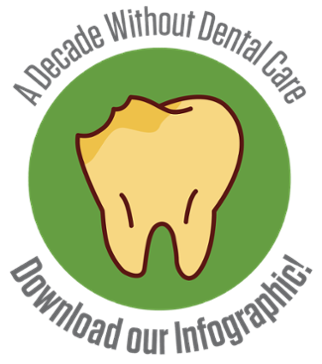By Mariah Chitouras on Sep 19, 2022 @ 09:00 AM
We know that our diet can influence our health, and result in conditions like diabetes and heart disease. But do you know about the impact your diet can have on your gums? We will take a closer look.
Sugar
Sugar is a major culprit, helping create an environment for the bacteria that cause dental caries, or cavities. The bacteria produce an acid that begins to eat through the enamel of the teeth and causes irritation to the gum tissue. As the tissue becomes inflamed and swollen, it moves away from the source of irritation. As the gum recedes, you become a more likely candidate for bone loss. This periodontitis and bone loss is the most frequent cause of tooth loss in adults.
Vitamins and Minerals
The vitamins and minerals necessary for bone health are also key for dental health.
- Calcium strengthens the bones of the lower jawbone and the maxilla (facial bones that hold the upper teeth). It also helps harden the enamel and makes it more difficult for bacteria to eat into the tooth.
- You can find great sources of calcium in milk and dairy products, as well as leafy greens, and a variety of nuts and seeds.
- Vitamin D helps the body absorb calcium and boosts bone mineral density.
- Look for Vitamin D-rich foods like fish (salmon, tuna, and herring), egg yolks, and even orange juice. You can also take a step outside and absorb some sunlight too!
- Potassium improves bone mineral density and protects the calcium in your bones and teeth.
- Bananas are one way to go if you're looking for a potassium boost. You can also try avocados, coconut water, and sweet potatoes.
- Phosphorous and Vitamin K are other substances that help with bone health.
- Up your intake of lentils, legumes, nuts, dark leafy greens, and proteins to up your bone health.
Now that we've got bone health covered, let's ensure that our teeth have a good environment to grow into. These vitamins, in addition to your bone health, play a crucial role in the health of your gums:
- Vitamin C helps keep your gums and the other soft tissues of your mouth stay strong and healthy. It also helps protect you against the early stages of gum disease and keeps your teeth tight in their sockets.
- We know some citrus fruits, broccoli, and berries could have you coasting a Vitamin C sufficient wave. Do you know what else can do that? Corn! Just make sure you floss afterward, for peak gum health, and to dislodge some of those sneaky kernels.
- Vitamin A helps your mucous membranes stay healthy, preventing dry mouth and allowing quicker oral healing.
- The common theme is green. Incorporate spinach into your diet for a powerful punch of Vitamin A, and some iron too! Throw some more Vitamin A-rich foods like mangoes, grapefruit, and pumpkin in a blender and you have an A+ smoothie.
As you can see, the foods you eat play a significant role in maintaining a happy, healthy mouth and overall wellness. For true success, it must be more than diet. It involves making lifestyle changes, no matter how small, to best take care of your smile and oral health. In addition to keeping up with your nutrition, don’t forget to brush your teeth, floss, and visit your dentist regularly!
Want to have Solstice benefits?
Call our sales team at 877.760.2247 or email Sales@SolsticeBenefits.com
Already have Solstice benefits?
See your plan details by going to https://www.mysmile365.com/ or calling us at 1.877.760.2247.





comments